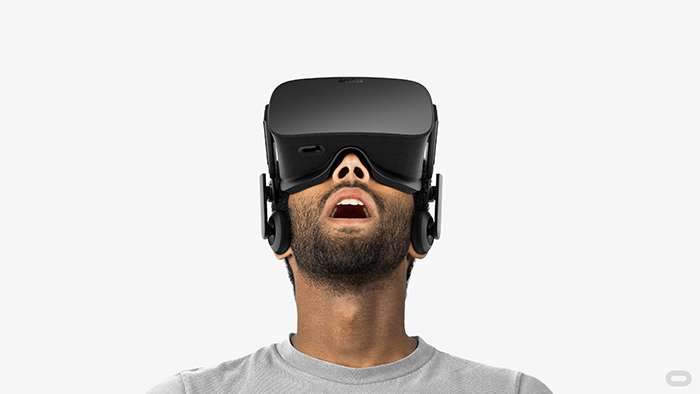Virtual reality firm Oculus will begin shipping the long-awaited consumer version of its Rift headset on March 28, but has faced a torrent of criticism over its minimum $850 price tag.
Coinciding with the Consumer Electronics Show (CES) in Las Vegas, Oculus said it would begin taking “pre-orders” for the Rift headset for shipment from March 28, with Australia among the first countries able to receive it.
But the VR darling ran into problems when it revealed the price for the standalone headset would be US$599 ($850) plus shipping.
Eager adopters and pundits alike had been expecting the headset to cost about the same as early developer versions – US$350 – which was somewhat confirmed by founder Palmer Luckey’s October 2015 comments that Rift would be “roughly in that ballpark… but it’s going to cost more than that”.
Luckey noted at the time a belief that people “are going to be happy with what they get for the price because I really do think it’s going to be that best VR headset you can buy."
Though the second part may not be called into question, it seems many prospective users were unprepared for just how much more than US$350 the new Rift would cost.
A contrite Luckey took to Reddit in an attempt to defuse anger over the price.
“Our biggest failing was assuming we had been clear enough about setting expectations,” he said.
“Another problem is that people looked at the much less advanced technology in DK2 [second developer version] for US$350 and assumed the consumer Rift would cost a similar amount, an assumption that myself (and Oculus) did not do a good job of fixing. I apologise.”
In all likelihood, however, owning a Rift is going to be far more expensive than just buying the headset.
Oculus has now published the minimum PC requirements to run a new Rift. If your existing PC doesn’t meet them, you could be up for the cost of a new computer, too.
Previously, Oculus had suggested that a bundle of an Oculus headset and suitably specified computer could cost about US$1500 ($2125). This will now be the starting price for such packages.
As “sticker shock” at the headset price has spread, Oculus has found many defenders.
The Verge believed both sides in the price debate were right – “and a little wrong, too.”
“The price is a middle-of-the-road first step toward an audacious future, a future that hinges on many other headsets from a half-dozen companies, software from hundreds of developers, and applications that haven't even been imagined yet,” The Verge opined.
Wired saw the price as a way to differentiate Rift from other VR systems past and present.
“[Rift] has to be a quantum leap; there has to be a dividing line between Rift and everything else,” the publication said, adding that it also “does not need to be a mass-market product this year.”
Wired also said it would be more concerned at the technical corners that competitors might cut to get their headsets down in price – and the impact that might have on people’s perceptions of the latest generation of VR.
Writing for VentureBeat, creative agency lead Adam Ghahramani believed the pricing was just savvy marketing.
“Put yourself in Oculus’ shoes. You have a hyped product in the Rift VR headset that you want to sell for $600. Launch is weeks away, and all your fans think that you’ll price between $350 and $450,” he said.
“What are your options?”









